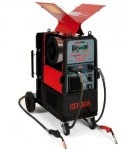here is that someone proposing a candidate will have at least a few words about qualifications or credentials. Unlike having to check references of an applicant after the fact (which too many shops often fail to do), the reference or referral comes ahead of the candidate.
Most of the time, a position in a small shop goes to someone who knows someone. This could be the friend of a customer, a former employee of a colleague or a friendly competitor (not so friendly, perhaps, if you are raiding its staff) or a recommendation by a supplier who knows your operation and your needs. Selecting someone who knows someone saves you the time and money of a formal search through advertising, employment agencies or schools. Besides, a personal recommendation usually comes with the candidate.
There are, however, a few downsides to using this method. For one, you risk alienating a customer, friend or colleague by rejecting their candidates. And, any recommended candidate will have a special status, unlike someone you discovered yourself and with whom you are free to manage as best suits your needs.
Perhaps the most professional approach to recruiting is through an agency. This may be the state employment service bureau or a private firm. State or regional employment agencies look to place those out of work, and you can often find good help there.
A private agency may provide a higher level of candidates, but then you run into the problem of who should pay the agency’s fee. While you are better able to afford the fee, job-hopping will be discouraged when the candidate has to pay it. Usually, the employer pays at least part of the agency fee, but typically only after the new hire has completed a trial period.
Both public and private agencies save you time by screening candidates before sending them along for you to interview. Private agencies usually boast a more thorough screening process, which partly justifies the fees. In addition, dealing with an agency will force you to define the job and its requirements clearly.
You also can consider putting a help-wanted sign in your window. Or, you might contact the local high school or junior college, the local Chamber of Commerce or other organizations.
If you decide to run a help-wanted newspaper ad, consider screening replies by using a box number for responses instead of your phone number. You won’t get as many replies, but you will save time and learn a few things – spelling skills and writing abilities, to name a few – about each applicant.
Recruiting Don’ts
When crafting your help-wanted ad, avoid any language that even hints at sex, race or age. For example, never use the words “young,” “mature” or “retired,” all of which have been ruled discriminatory by the courts. If you want a young candidate but fear listing that as a requirement, it’s better to advertise for someone who is “attuned to the interests of young people.”
Gender discrimination may sneak up on you. In very few cases do government regulatory agencies rule that some jobs are best for men and others for women. Never advertise jobs as having light or heavy duties with the intention of filling the light ones with just women and the heavy ones with men. It’s better to stick with gender-free terms in your ad. Avoid such references as “this position will require him (or her) to…” Instead, refer to “the candidate,” a gender-free term.
Also keep in mind that the wording of a help-wanted ad puts you on record forever. There’s always a chance it will be used against you in a subsequent discrimination, wrongful discharge or unfair labor practice suit. Some examples of phrases to avoid include: “permanent position” (nothing is forever), “earn $X” (what if this is a commission job, and the candidate fails to reach that level?) and “rapid advancement possible” (what if you hire a dead-ender for whom advancement is impossible?).
The Application
Now comes the really tough part – selecting the new employee. From a group of applicants, you must find and hire the best of the bunch.
The first step is drafting an application form and formalizing the interview procedure. The easiest route to an excellent application form is to buy one at the local office products store and adapt it for your business needs.
Include in the form a release giving you the right to conduct a background check, screen for illegal drug use and ask previous employers to disclose personnel files.
The application form must not include questions about applicant’s date of birth, marital status, names of household members, number of children or their ages, how children will be cared for during business hours, where a spouse or parent resides or works, ownership of residence or history of arrests or wage garnishments. Also dangerous is the question: “Do you have a car?” This could be perceived as discriminatory against low-income people.
Nor should you request a photograph or ask about height or weight (which may discriminate against women and some ethnic groups) or physical condition not related to work requirements. Some of these questions may be asked later, such as age, when required for benefit programs. However, focus your help-wanted advertising, application and interview on just the requirements of the job, and you should be able to avoid legal trouble. If the job doesn’t require a high-school education, don’t inquire about it.
Both the application form and the interview process must strictly conform to Equal Employment Opportunity provisions and other worker protection laws. If you have questions, call the state employment service bureau or the Equal Employment Opportunity Commission. Inquiries to avoid, plus other tips for hiring, can also be found in the Federal Employment Law Handbook (800-552-6342 or visit www.nfib.com/legal).
When used in conjunction with a written application, pre-employment testing can help you get a handle on candidates before the interview process begins. These usually are general ability tests. You may find them in the Yellow Pages under “Test Publishers.”
The Interview
After you’ve completed recruiting, the application form and testing, the next step is the most crucial – the interview itself. If you’re personally doing the interviewing (you should at least participate), acknowledge that you may not be good at it. What made you a good business manager does not necessarily make you a good judge of people.
So, prepare yourself. Make a list of knowledge, skills, personal characteristics and attitudes that the job requires and then determine how to evaluate each candidate consistently. Much of this list may be found in the job description you should have created before you began the recruiting process.
Study that job-requirements list to determine what questions should be asked in the interview. For instance, if you have a service writer vacancy, you might ask: “In conversation, are you more a talker or a listener, and why?” Of course, the best answer would be “a listener,” since in most shop situations, the most successful listening:talking ratio is about 3:1. When a candidate realizes this and gives the right answer, observe whether the candidate does indeed have good listening skills plus an ability to grasp what you’re saying about the job.
Having a list of identical questions to ask all candidates allows for an apples-to-apples comparison later and also avoids discrimination charges. Another tip: Use open-ended questions, such as “What do you like about be a technician?” rather than asking simple yes-no queries, such as “Do you like working on cars?”
Study the candidate’s attitude and personality. Does the applicant maintain eye contact? Does he or she criticize a previous employer or seem more interested in compensation, perks and fringes than in the nature of the job and its duties and your company?
Every candidate you interview deserves a realistic description of the job, including duties, hours, compensation, benefits, vacation time and opportunity for advancement. Never hide unpleasant aspects of the job, such as cleaning during slow times or working overtime on occasion. Also stress the positives of your operation. Just like the applicant, you should put your best foot forward, too.
Hopefully, a candidate’s potential supervisor will join you in the interviewing process as that person will be more interested in having the hiree succeed.
When you think you’ve found Mr./Ms. Right, don’t make the mistake of promising too much in your eagerness to hire this candidate. Here are some promises that could come back to haunt you:
“Do your work, and you will always have a job here.”
“We are financially strong and will never have a lay off.”
“Company policy is to promote from within. In two years, you should be a manager.”
Background Checks
To cover your legal bases further, make sure you conduct a background check, contacting (preferably by phone) the references listed on the application or given during the interview. Of course, previous employers are worried about potential job discrimination lawsuits, too. They probably will not go into detail about qualifications, but you can probably get answers on dates of employment (some applicants fudge these to cover up long breaks in employment) and perhaps even reasons for leaving, including whether the applicant was terminated or resigned.
Because of ever-tightening labor law, checking references can be like walking on eggs – one misstep, and you’ve got a mess. Courts are extending new privacy rights to employees, limiting what you can ask and what a former employer can reveal. You might want to refer to a recently updated publication of the Society for Human Resource Management, titled “Reference Checking Handbook” ($20 plus shipping, 800-444-5006).
You can choose to hire a detective agency, many of which do background checks. The ones we talked with quoted an average of $300 minimum for a non-executive candidate check, including arrest record, education and job history.
If your open job involves driving customer vehicles – or your own – checking candidate driving records is a must.
Whatever method you use, personal or professional, be sure to check references. Reference checking will not only provide the best candidate, it also may protect against a subsequent negligent hiring suit. For example, if you hire a parts truck driver without checking his driving record, anyone he injures may sue you for negligence. Ditto if you fail to check a criminal-conviction record of a new hiree who then later turns violent with a customer or staffer. So, be thorough and keep a paper trail of your procedures, including questions and answers during interviews, to establish that you were diligent in screening new hires.
Once your selection is made (and don’t be so slow that good candidates turn elsewhere), notify all others interviewed that the job has been filled. They are entitled to that. This may be by letter or even a phone call, but never get specific as to why a candidate was not hired. The safest explanation is simply that you found someone better suited for the job.
Hopefully, you have hired an excellent candidate for the job. The better you hire, the less you have to fire.
|
Technician Shortage in the Aftermarket
Numerous reports show that there is a shortage of qualified entry-level technicians nationwide in the aftermarket sector. That’s a major concern considering vehicle service and repair are such a huge factor in aftermarket sales. Hiring Retaining Talent A positive, developmental work environment and good benefits, along with intellectual stimulation are additional drivers (besides salary) in retaining talent. Although the technician shortage is viewed by some as subjective, there is no denying these factors play a role in retaining quality employees. Technicians take pride in working at a business that has a strong reputation for treating its employees well. What Can I Do? Courtesy of Universal Underwriters Group |








